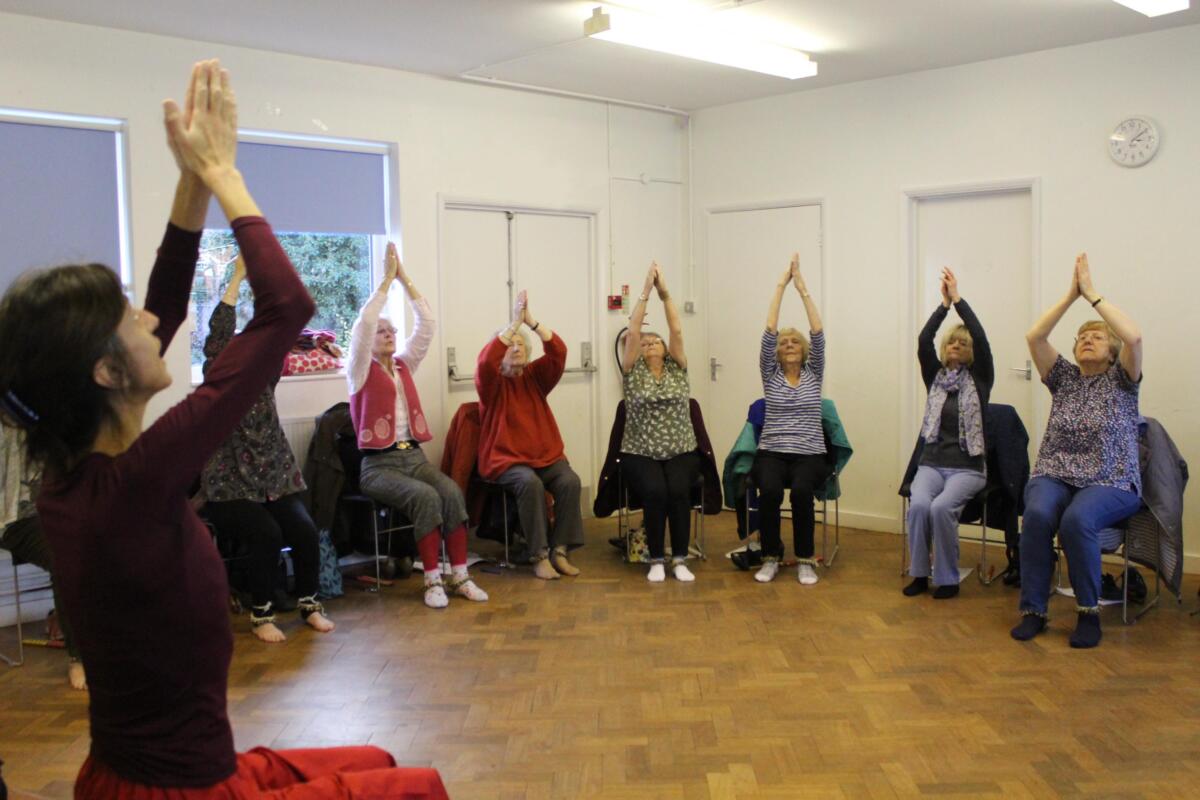Akademi to present at Aesop Arts & Health Showcase

Akademi’s Dance Well project, funded by the Big Lottery, has provided dance and movement workshops influenced by South Asian dance for older adults since January 2016. The project aims to improve the health and wellbeing of isolated older adults who are not currently engaging in the recommended levels of physical activity. To date, Dance Well has reached over 600 older adults in community organisations, care homes, dementia day centres and hospitals.
Akademi is one of 24 organisations showcasing their work at the second Aesop Arts in Health Conference and Showcase on 19 April at Guildhall School of Music and Drama, London. This presentation will focus on Akademi’s work with cardiac and pulmonary rehabilitation patients at Harefield Hospital including a new study to establish if a South Asian dance intervention results in an improvement to aspects of physical fitness and psychological wellness.
Dance Well is building evidence for South Asian dance as a viable tool to improve the health and wellbeing of older adults. The workshops with cardiac and pulmonary rehabilitation patients at Harefield Hospital in collaboration with rb&hArts have been led by Kathak dance artist, Rachel Waterman, and been extremely well received, with participants stating that it has improved their breathing, mental health and social interaction in the community.
I come out of the sessions feeling more flexible, my energy is boosted and it is hugely uplifting mentally – Dance Well participant
Current data goes some way to establishing the positive impact of dance on the physical, social and emotional health of participants. Akademi now aims to further develop this evidence base through a structured dance intervention at Harefield Hospital, alongside measurements of physical fitness and psychological wellness.
Dance Well provides an ongoing, enjoyable form of exercise once patients have completed cardiac and pulmonary rehabilitation and provides exercises to carry out at home in addition to the classes. Cardiovascular disease cost the healthcare system around £8.6 billion in 2009 with informal care costing around £3.8 billion (1). With an average 76% of patients who are referred to cardiac rehabilitation considered inactive (2), offering a continued programme of enjoyable post-rehabilitation physical activity should offer a cost-effective option to maintain levels of physical activity in these patients, as well as reducing incidents of loneliness.
Christina Christou, Akademi’s Consultant Education Director said: Dance Well’s artists have been carefully distilling the essence of South Asian dance practices and creating hugely impactful moments, working especially through the breath and with attendance to the smallest beautifully-created mudra (symbolic hand-gesture) right across to mood-elevating and stirring movement sequences.
This work has been enriching the treatments and recovery of patients and we propose that creativity and the spirit of South Asian dance is a heartening exponent in supporting adults to recapture strength and sustain wellbeing.”
Tickets are available to book directly on https://goo.gl/hNKFYr
References
1. (2013) Economic costs of physical activity, British Heart Foundation National Centre
2. (2017) Physical Inactivity and Sedentary Behaviour Report 2017